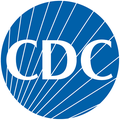Overview
- Cholera is caused by infection with a bacteria, Vibrio cholerae, that produces a toxin. The cholera bacterium is usually found in water or food sources that have been contaminated by feces (poop) from a person infected with cholera. Cholera is most likely to be found and spread in places with inadequate water treatment, poor sanitation, and inadequate hygiene.
- The most common symptom of cholera is a large amount of watery diarrhea, often described as “rice-water stool” because it can have a pale, milky appearance. It can also be accompanied by nausea and vomiting. Cholera can be severe and rapidly fatal without treatment (replacement of water lost by diarrhea).
- Cholera occurs in approximately 50 countries, primarily in Africa and South and Southeast Asia. Globally, cholera results in an estimated 2.9 million cases of disease and 95,000 deaths each year.
- Cholera is rare in the United States. Most U.S. cases occur among travelers to countries where cholera is present.
- An oral cholera vaccine (Vaxchora) is available in the United States and is licensed for use in persons 2 through 64 years of age traveling to cholera-affected areas. The vaccine is recommended by CDC for adults 18 years through 64 years of age traveling to areas with active cholera transmission (most people do not travel to areas of active cholera transmission). The vaccine prevents severe diarrhea caused by the most common type of cholera bacteria.
- Avoiding unsafe food and water can also prevent many cholera infections. Travelers who consistently observe safe food, water, sanitation, and handwashing recommendations while in countries affected by cholera have almost no risk of acquiring cholera. See Food & Water Precautions.
- No country or territory currently requires vaccination against cholera as a condition for entry.
Cholera Vaccine Schedule
A single dose of oral cholera vaccine is recommended for adult travelers (18–64 years old) from the United States to an area of active cholera transmission. The vaccine reduces the chance of severe diarrhea in people by 90% at 10 days after vaccination and by 80% at 3 months after vaccination. The safety and effectiveness of the oral cholera vaccine in pregnant or breastfeeding women is not yet known, and it is also not known how long protection lasts beyond 3–6 months after getting the vaccine. There is no recommendation for a booster dose at this time. Side effects from the vaccine are uncommon and may include tiredness, headache, abdominal pain, nausea and vomiting, lack of appetite, and diarrhea.
For more information visit CDC’s Cholera vaccine page.
Partner Resources

Access the cholera chapter of the CDC Yellow Book for travel-associated infections and diseases. CDC also has a Destinations tool to find the latest health and vaccine information by country.

Find fact sheets, resources, multimedia, and more for parents and children from CDC.

Questions and answers about cholera and vaccines from the Vaccine Education Center at the Children’s Hospital of Philadelphia.

The online global clinic directory is a database of International Society of Travel Medicine members and their global travel clinics. Users can search by location and by services offered.
People of any age can feel a bit anxious about getting a shot. Some may be so anxious that they avoid vaccination…even when they know it’s important. Learn more about simple ways to help any child or adult feel better and more confident when getting vaccinated.
State and local information for vaccination resources near you.
CDC Travelers’ Health: Find a Clinic